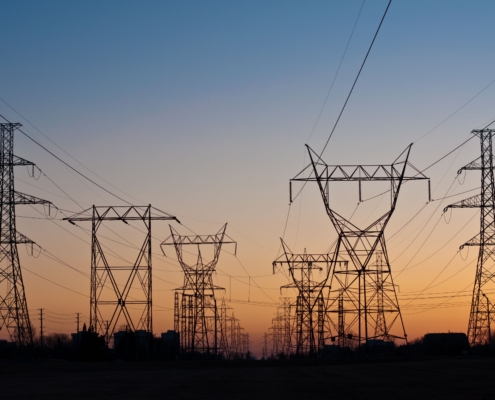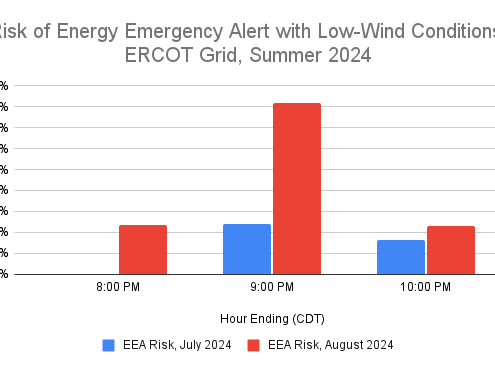Last Updated on June 12, 2023 by Mary Pressler
The Power Of Owning A Backup Generator in Texas
The winter storm from February 2021 revealed that the Texan power grid is very vulnerable to cold weather. Both wind turbines and gas wells were taken offline, lacking the weatherization measures to operate with extreme cold. Since Texas produces over 70% of its electricity with wind and gas, the grid collapsed – the harsh weather caused over 200 casualties and an estimated economic loss of $80 – $130 billion.
There were concerns that the grid would not be able handle summer demand in Texas, especially in the month of August. However, the maximum demand stayed below 73.5 gigawatts (GW) in August, when ERCOT was expecting a peak of over 77 GW. The grid could handle summer consumption, but the risk still remains:
- During summer there is no risk of freezing, and this was the main factor that destabilized the grid in February.
- There has been no legislation that mandates weatherization in the Texan energy sector, and the grid is not prepared for the 2021-2022 winter.
If you own a home or business in Texas, now is a good time to invest in a backup power system. Here we will compare three viable options: conventional diesel generators, battery systems, and natural gas generators.
Home Backup Power Option #1 – Diesel Generator
Diesel generation is a tried-and-true solution when you need backup power, and the most popular option for home and commercial buildings. Since this is an established technology, it offers many advantages:
- There are many providers in the market, giving you plenty of options to choose from.
- Since diesel generators are so popular, there are many experienced technicians who work with them – maintenance services are widely available.
- Replacement parts can be obtained easily if your generator malfunctions.
However, diesel generators also have technical limitations you should be aware of. Since they depend on diesel, their operating cost is very high – one kilowatt-hour from a diesel genset can be 2 – 4 times more expensive than one kilowatt-hour from the grid.
These generators also depend on regular fuel deliveries by truck. Keeping enough diesel onsite is critical, or you could face an emergency with low reserves. Extended power outages like those from February 2021 can deplete the diesel tank, and deliveries are often disrupted by harsh weather.
In a few words, a diesel generator is a reliable option for most power outages, but you need a large fuel tank to use it during long emergencies.
Home Backup Power Option #2 – Battery System
Battery systems for homes are buildings are still an emerging technology, but they have promising applications in the energy industry. Batteries can charge with rooftop solar panels or the grid itself, which means you don’t have to worry about fuel deliveries.
The large-scale adoption of energy storage systems can make power grids more stable. If many buildings in a region have battery systems, they can be used as backup when the grid experiences high demand.
- Assume that 10,000 homes are equipped with a 5-kW battery like the Tesla Powerwall or the LG Chem RESU 10.
- These batteries can provide a combined power output of 50,000 kW (50 MW), helping the grid at times of peak demand.
Currently, the main limitation of energy storage is a high price – you can expect to pay over $10,000 for a small residential system. However, batteries qualify for a 26% federal tax credit if they are charged with solar panels. Batteries that are charged with solar panels or wind turbines also offer an environmental benefit, since they operate with zero emissions.
In a few words, a battery system is a great option for backup power if you don’t want to depend on fuel deliveries. However, they come with a high price tag.
Home Backup Power Option #3 – Natural Gas Generators
Natural gas generators are much less common than diesel generators, but they have a major advantage. You don’t depend on regular fuel deliveries, since natural gas reaches your home with underground pipes. Natural gas also produces less emissions than diesel when used to generate power.
If you own a medium-sized business, you can even consider installing a gas microturbine. You can generate your own power, and waste heat can be captured for water heating – and also for indoor spaces during winter.
In general, gas networks are more resilient than power grids. When the electric supply is interrupted, you can generate power for your building with natural gas. However, February 2021 was an extreme case – gas wells were also disabled by the low temperatures.
In a few words, a natural gas generator has the advantage of using a utility service, and not depending on diesel deliveries.
Outlook for the Texas Power Grid
Texas has many power generation projects being considered for development: 91 GW of solar, 23 GW of wind, 33 GW of battery storage, and 7.6 GW of natural gas generation. However, all this generation capacity depends on a reliable grid to reach homes and businesses.
To achieve a reliable electricity supply, grid upgrades must keep up with construction of new power plants. PUCT chairman Peter Lake has also proposed a capacity market, where generators are rewarded for their ability to supply megawatts on demand.
- Currently there is only an energy market, which only rewards flexible and responsive generation when the grid is about to collapse.
- He describes the current situation as a “crisis-based business model”.
If you’re a home or business owner, a backup power system ensures an electricity supply during emergencies. This is especially useful during the blackouts that happen when power grids are overloaded in summer, or disrupted by harsh weather in winter.










